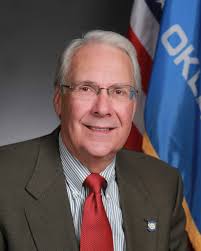House Committee Approves Bill to Cap Cost of Insulin
Mike Seals - February 24, 2021 11:25 pm

OKLAHOMA CITY – The Oklahoma House of Representatives Insurance Committee today passed legislation to cap the cost of insulin for many Oklahomans with Type 1 diabetes.
House Bill 1019’s author, Rep. Rande Worthen, R-Lawton, said the bill seeks to cap the amount of copayment an individual would be required to pay. Currently, an individual’s copay is based on their own insurance plan.
Worthen said he had wondered for years why the cost of insulin has continued to increase, but decided to file legislation to address the problem after hearing from several people that the price of insulin had become astronomical.
“It’s pretty bad when we’re more concerned about the amount of money that can be made than we are with people’s lives,” Worthen said. “Insulin is not like vitamins where if you miss it once, it’s no big deal. It must be taken daily to avoid the negative effects of diabetes. No person should be forced to choose between paying for life-saving insulin and paying other bills.”
The bill also requires the Oklahoma Insurance Commissioner to enforce compliance of the cap on copayments and gives the commissioner authority to promulgate rules as necessary.
HB1019 passed committee 8-0 and is now eligible to be considered on the House floor. Worthen encouraged Oklahomans who are supportive of the measure to contact their legislators.
“There have been several attempts over the last several years to address the skyrocketing price of insulin, so I hope there is enough interest to get this bill passed by both chambers and signed into law by the governor,” Worthen said. “House Bill 1019 would be a great step forward to provide relief for the hundreds of thousands of our citizens who are insulin dependent.”
In Oklahoma, approximately 451,888 people, or 14.3% of the adult population, have some form of diabetes. Approximately 5% of Oklahomans with diabetes have Type 1 diabetes and require insulin. According to the American Diabetes Association, Oklahomans with diabetes have medical expenses approximately 2.3 times higher than those who do not have diabetes.
Type 1 diabetes is caused when a person’s body does not produce enough insulin, resulting in high levels of blood sugar or glucose. This puts them at risk of serious health complications, including kidney failure and stroke. There is no known way to prevent or cure Type 1 diabetes.



